Infectious Diseases Fellowship
Educational Program
Henry Ford St. John Hospital offers a two-year training program in Infectious Diseases at a 770-bed tertiary care center in Michigan. We offer a wide range of clinical experience, including HIV, hepatitis C and B virus, hematology/oncology patients, travel care, and kidney and pancreas transplant recipients.
The hospital laboratory offers a full complement of services. Assays for antimicrobial levels are done on site and monitored by a team of clinical pharmacists who provide pharmacological consultations. Most fungal and viral serologic tests are also performed in our laboratory. Our clinical microbiology offers complete isolation and identification of aerobic and anaerobic bacteria, fungi, parasites, mycobacterium, mycoplasma, chlamydia and a variety of viruses. Our immunology laboratory provides the most current immunologic assays that complement our Infectious Diseases and Transplant programs.
Program Tour
Training
| Adult ID | 12 months |
| Microbiology | 2 weeks |
| Solid Organ Transplant | 1 month |
| Scholarly Activity | 8.5 months |
| Infection Control | 2nd year |
| Antimicrobial Stewardship | 2nd year |
| Pediatric ID | 1 month |
Inpatient Rotations
Clinical rotations are spent on the main campus with the exception of bone marrow transplant service, which is provided off campus. During these rotations, the trainees work with medical students and rotating residents and are supervised by our full-time faculty with an emphasis on education. Experience in Pediatric Infectious Diseases is acquired during rotation on our Pediatric Infectious Diseases service and through our conferences that are attended by our adult and pediatric Infectious Diseases faculty.
Ambulatory Care Facilities Experience
Throughout training, continuous outpatient experience is maintained at one to two half-days per week. Our outpatient facilities adjoin the hospital and provide convenient arrangements for proper and timely outpatient practice. During outpatient settings, the teaching faculty supervises trainees and topics relevant to outpatient practice are discussed.
Teaching Faculty
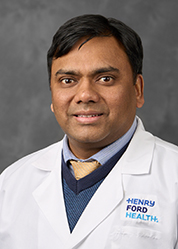
Research Director
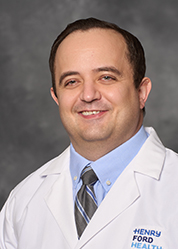
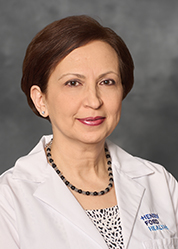
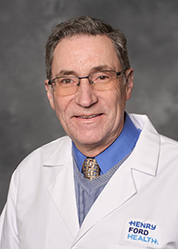
Infectious Diseases
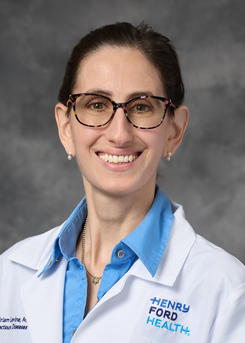
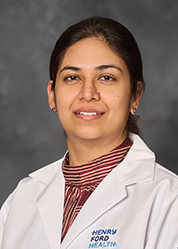
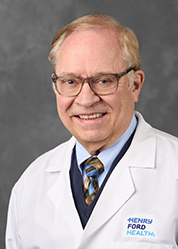

Infection Control
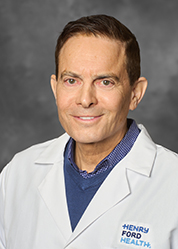


Current Fellows
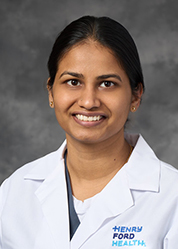
Infection Control
Trainees gain progressive experience in the methods of infection control, surveillance, outbreak investigation and analysis of infection rates in a six month block. Attendance and participation in Infection Control committee meetings three times per month are required in the second year. They are assigned an epidemiological problem to solve under the direction of our hospital epidemiologist and present the results to the Infection Control Committee. Trainees are also provided an opportunity to attend one of the CDC-sponsored epidemiology courses to complement training in infection control.
Antimicrobial Stewardship
In June 2021, the IDSA has designated Henry Ford St. John Hospital as an Antimicrobial Stewardship Center of Excellence. Second year fellows participate in a six-month block by attending Antimicrobial Stewardship (AMS) meetings. Fellows learn the basics of tracking hospital-wide utilization as well as the core requirements for an AMS program as mandated by Joint Commission. In addition, fellows will participate in at least one AMS project intended to reduce excess antimicrobial use under the supervision of the AMS chair.
Research
During the first year, trainees are assigned to work on a project with one of the faculty. During this year, emphasis is placed on gaining experience in different microbiologic and immunologic methods utilized in our research projects.
During the second year, trainees are encouraged to pursue an independent research project supervised by an attending physician. Trainees are expected to present one research project at our annual Michigan Infectious Diseases Society scientific meeting, as well as at the annual meeting of the Infectious Diseases Society of America (IDSA).
For More Information
Please contact:
Ms. Deborah LaBuda Spampinato at dspampi1@hfhs.org.
We accept applications only through ERAS.
.svg?iar=0&hash=F6049510E33E4E6D8196C26CCC0A64A4)
/hfh-logo-main--white.svg?iar=0&hash=ED491CBFADFB7670FAE94559C98D7798)